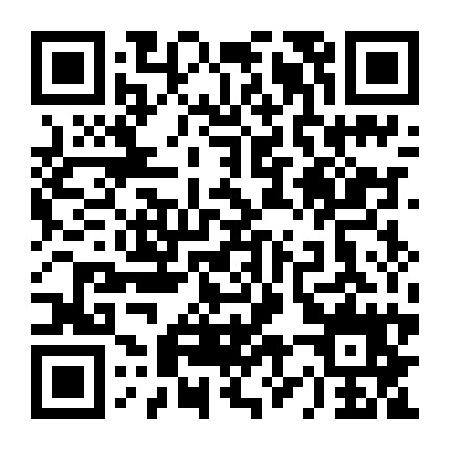49. We hope this radio will help overcome the tedium felt during your stay in the hospital.
A. pain B. loneliness
C. boredom D. nervousness
50. He is not yet well enough to dispense with the doctor’s services.
A. give heed to B. pay no attention to
C. do away with D. do without
Part IV Cloze (10%)
Directions: For each numbered blank in the following passage there are four choices marked A, B, C, and D listed below. Choose the correct answer and mark your answer on the ANSWER SHEET.
In former times, doctors in Taiwan, who were considered saviors, were greatly admired. This is not only because they were able to 51 sick people of their pain and save their lives, but also because they demonstrated an 52 willingness to help the sick. However, now in this industrial world, people are 53 to chase material possessions. This is true 54 doctors, too. The high income of doctors is the 55 of other people. Many high school graduates are eager to get into medical colleges, and countless girls consider doctors to be their best choice of husbands. For many years the public has 56 that doctors in public hospitals demand money from inpatients. The amount of money the patients give determines the kind of 57 they receive. It has also been said that a large pharmaceutical factory set up by U.S. investors declared that it would stop giving kickbacks(回扣)to doctors 58 the factory has spent too much money 59 sales over the years. This declaration has caused quite a stir in our society. We wonder 60 the officials who have denied the dealings mentioned above will say about this.51.A.releaseB.relieveC.depriveD.reduce52A. admirableB.advisableC. appreciableD. acceptable53.A.tendedB.opposedC.inclinedD.persuaded54.A.withB.forC.toD.of55.A.hatredB.prideC.envyD.disgust56.A.chargedB.accusedC.blamedD.contended57.A.informationB.treatmentC.adviceD.interpreta- tion58.A.ifB.asC.thoughD.when59.A.promotingB.contributingC.manipulatingD.inducing60.A.whatB.thatC.whyD.whether
Part IV. Reading Comprehension (30%)
Directions: In this part of the test there are six passages. Following each passage there are five questions with four choices. Choose the best answer and mark your answer on the ANSWER SHEET.
Passage One
Cells cannot remain alive outside certain limits of temperature, and much narrower limits mark the boundaries of effective functioning. Enzyme (酶) systems of mammals and birds are most efficient only within a narrow range around 37ºC; a departure of a few degrees from this value seriously impairs their functioning. Even though cells can survive wider fluctuations, the integrated actions of bodily systems are impaired. Other animals have a wider tolerance for changes of bodily temperature.
For centuries it has been recognized that mammals and birds differ from other animals in the way they regulate body temperatures. Ways of characterizing the difference have become more accurate and meaningful over time, but popular terminology still reflects the old division into “warm-blooded’ and “cold-blooded” species; warm-blooded included mammals and birds, whereas all other creatures were considered cold-blooded. As more species were studied, it became evident that this classification was inadequate. A fence lizard or a desert iguana (鬣蜥)—each cold-blooded—usually has a body temperature only a degree or two below that of humans and so is not cold. Therefore the next distinction was made between animals that maintain a constant body temperature, called homotherms(同温动物), and those whose body temperature varies with their environment, called poikilotherms(变温动物). But this classification also proved inadequate, because among mammals there are many that vary their body temperatures during hibernation. Furthermore, many invertebrates(无脊椎动物) that live in the depths of the ocean never experience a change in the chill of the deep water, and their body temperatures remain constant.
The current distinction is between animals whose body temperature is regulated chiefly by internal metabolic processes and those whose temperature is regulated by, and who get most of their heat from, the environment. The former are called endotherms (恒温动物), and the latter are called ectotherms (外温动物). Most ectotherms do regulate their body temperature, and they do so mainly by locomoting to favorable sites or by changing their exposure to external sources of heat. Endotherms (mainly mammals and birds) also regulate their temperature by choosing favorable environments, but primarily they regulate their temperatures by making a variety of internal adjustments.
61. The passage mainly discusses _______.
A. body temperatures of various animals
B. the newest research on measuring temperature
C. methods of temperature reduction
D. the classification of animals by temperature regulation
62. Which of the following terms refers primarily to mammals and birds?
A. Warm-blooded. B. Ectothermic.
C. Cold-blooded. D. Poikilothermic
63. In general, the temperature of endotherms is regulated _______.
A. consciously B. internally
C. inadequately D. environmentally
64. According to the passage, the chief way in which ectotherms regulate their temperature is by
_______.
A. seeking out appropriate locations
B. hibernating part of the year
C. staying in deep water
D. triggering certain metabolic processes
65. According to the passage, human beings mainly regulate their body temperatures by _______.
A. choosing favorable environments B. internal metabolic processes
C. eating more food D. doing physical exercises
Passage Two
The narrow passage ended in a round arch fringed with ivy and creepers. The children passed through the arch into a narrow ravine whose banks were of stone, moss-covered. Trees growing on the top of the bank arched across and the sunlight came through in changing patches of brightness. The path, which was of greeny-grey stones where heaps of leaves had drifted, sloped steeply down, and at the end of it was another round arch, quite dark inside, above which were rose rocks and grass and bushes.
“It’s like the outside of a railway tunnel,” said Jimmy.
“It might be the entrance to an enchanted castle,” said Kathleen.
Under the drifted damp leaves the path was firm and stony. At the dark arch they stopped.
“There are steps down,” said Gerald.
Very slowly and carefully they went down the steps. Gerald struck a match when the last step was found to have no edge and to be in fact the beginning of a passage turning to the left.
“This,” said Jimmy, “might take us back to the road.”
“Or under it,” said Gerald, “we’ve come down eleven steps.”
They went on, following Gerald, who went very slowly for fear, as he explained, of steps. The passage was very dark.
Then came a glimmer of daylight that grew and grew and presently ended in another arch that looked out over a scene so like a picture out of a book about Italy that everyone’s breath was taken away, and they simply walked forward silent and staring. A short avenue of cypresses led, winding as it went, to a marble terrace that lay broad and white in the sunlight. The children, blinking, leaned their arms on the flat balustrade (栏杆) and gazed.
Immediately below them was a lake with swans and an island with willow trees, and among the trees gleamed the white figures of statues. Against a hill to the left was a round white building with pillars and to the right a waterfall came tumbling down among mossy stones to splash into the lake. Steps went from the terrace to the water and other steps to the green lawns beside it. Away across the grassy slopes deer were feeding and in the distance was an enormous house of grey stone, like nothing the children had ever seen before.
“It is an enchanted castle,” said Gerald.
“There aren’t any enchanted castles,” said Jimmy, “you ought to know that.”
“Well, anyway, I’m going to explore,” said Gerald. “You needn’t come if you don’t want to.”
The others followed. There never was such a garden—out of a picture or a fairy tale. They passed quite close to the deer, who only raised their heads to look and did not seem startled at all. After a long stretch of grass, they passed under an avenue of lime trees and came into a rose garden bordered with thick hedges.
“I know we shall meet a gardener in a minute and he’ll ask what we’re doing here, and then what shall we say?” Kathleen asked.
“We’ll say we’ve lost our way, and it will be quite true,” said Gerald.
66. When they came out of the last arch the children were silent because _______.
A. they were out of breath B. they were amazed at what they saw
C. the light hurt their eyes D. they saw an Italian picture
67. From the terrace the children were able to see _______.
A. a lake with trees growing in it
B. some swans among the trees on an island
C. a lake just behind them
D. some statues on an island in the lake
68. How was it possible to reach the lake from the terrace?
A. There were some steps leading down.
B. There were some steps leading right.
C. There was a waterfall going down to the lake.
D. There were steps to some stones.
69. Kathleen thought that if they met a gardener _______.
A. he would think they had lost their way
B. he would know why they were there
C. they would ask him why they were there
D. he would ask them why they were there
70. The story suggests that the children _______.
A. had been told about the castle before
B. had seen pictures of the castle in a book
C. had no idea what they were going to see
D. knew they were going to see something wonderful
考博必备!历年真题及答案
考博精品好课,就选新东方!

 资料下载
资料下载
【必看】考博英语词汇10000例精解
发布时间:2020-09-02关注新东方在线服务号
回复【10000】免费获取
医学考博英语作文核心基础词汇整理
发布时间:2020-04-15关注新东方在线服务号
回复【医学考博】获取
医学考博英语阅读理解练习资料
发布时间:2020-04-15关注新东方在线服务号
回复【医学考博】获取
法学考博英语高频词汇word版
发布时间:2020-04-15关注新东方在线服务号
回复【医学考博】获取
医学博士英语统考真题及解析
发布时间:2019-12-26关注新东方在线服务号
回复【考博真题】获取
全国医学博士外语统一考试真题
发布时间:2019-12-26关注新东方在线服务号
回复【考博真题】获取
中科院考博英语复习备考实战经验分享
发布时间:2019-12-26关注新东方在线服务号
回复【考博经验】获取
中科院考博英语真题练习资料
发布时间:2019-12-26关注新东方在线服务号
回复【考博真题】获取

关注新东方在线服务号
关注新东方在线服务号,
免费获取考博必看干货资料

 推荐阅读
推荐阅读
考博英语写作类型:对立观点式 考博英语是考博中重点考察的科目,想要更好的拿到高分成绩,对于同学来说,大家在实际的备考中,需要更
来源 : 网络 2025-05-14 17:39:10 关键字 : 考博英语写作
考博英语写作类型:反面话题 考博英语是考博中重点考察的科目,想要更好的拿到高分成绩,对于同学来说,大家在实际的备考中,需要更全面
来源 : 网络 2025-05-14 17:38:50 关键字 : 考博英语
考博英语写作类型:反面现象批评型 考博英语是考博中重点考察的科目,想要更好的拿到高分成绩,对于同学来说,大家在实际的备考中,需
来源 : 网络 2025-05-14 17:37:56 关键字 : 考博英语
考博英语写作类型:不同观点列举型 考博英语是考博中重点考察的科目,想要更好的拿到高分成绩,对于同学来说,大家在实际的备考中,需
来源 : 网络 2025-05-14 17:37:35 关键字 : 考博英语
考博英语写作类型:阐述主题型 考博英语是考博中重点考察的科目,想要更好的拿到高分成绩,对于同学来说,大家在实际的备考中,需要更
来源 : 网络 2025-05-14 17:37:17 关键字 : 考博英语写作类型


 考博好课推荐
考博好课推荐
基础薄弱,备考迷茫,送纸质资料
价格 : ¥2280元
资深教师,教学简明,直接有效!
价格 : 0元
 资料下载
资料下载
关注新东方在线服务号
回复【10000】免费获取
关注新东方在线服务号
回复【医学考博】获取
关注新东方在线服务号
回复【医学考博】获取
关注新东方在线服务号
回复【医学考博】获取
关注新东方在线服务号
回复【考博真题】获取
关注新东方在线服务号
回复【考博真题】获取
关注新东方在线服务号
回复【考博经验】获取
关注新东方在线服务号
回复【考博真题】获取

 阅读排行榜
阅读排行榜
 相关内容
相关内容